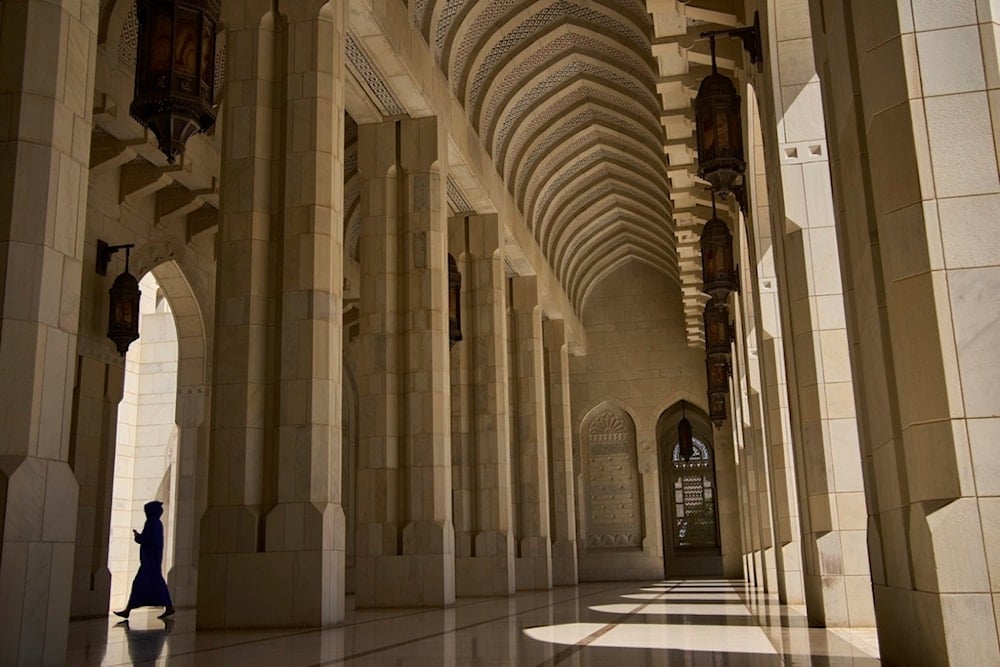Iran, US complete first round of indirect nuclear talks
During the opening session, Araghchi handed Oman's foreign minister Iran's official positions and reiterated Tehran's intention to reach a "fair and honorable agreement from an equal standing."
-

A tourist walks through the courtyard of the Sultan Qaboos Grand Mosque in Muscat, Oman, Saturday, April 12, 2025. (AP Photo/ Fatima Shbair)
Iran's Foreign Ministry confirmed the conclusion of the first round of indirect negotiations with the United States, held in the Omani capital Muscat, focusing on Iran's nuclear program and potential sanctions relief.
The discussions, which wrapped up Saturday, were described by Tehran as taking place in a "positive atmosphere based on the principle of mutual respect."
The Iranian delegation, led by Foreign Minister Abbas Araghchi, and the American team headed by US envoy Steve Witkoff, remained in separate rooms, with Omani Foreign Minister Badr al-Busaidi serving as an intermediary.
An Omani source told Reuters that the talks also touched on regional de-escalation, prisoner exchanges, and limited deals to ease US sanctions in exchange for curbs on Iran's nuclear activities.
The MFA concluded by revealing that Araghchi and Witkoff spoke for a few minutes after the indirect talks ended before leaving the venue in the presence of the Omani Foreign Minister.
Despite some media reports suggesting the two delegations had entered a joint hall, diplomatic sources told Al Mayadeen that negotiations remained strictly indirect, confirming that any such claims were false.
According to Iranian government spokesperson Fatemeh Mohajerani, Tehran intentionally chose the indirect format to ensure clarity and prevent media distortion. She stated that this approach reflects "diplomatic rationality that suits the needs of the current phase," noting that every message must be "written and clear, without show-off or sidelines."
Tentative Engagement
During the opening session, Araghchi handed Oman's foreign minister Iran's official positions and reiterated Tehran's intention to reach a "fair and honorable agreement from an equal standing." He noted that if Washington shares the same intent, the current dialogue could pave the way for a serious negotiation process. However, he stressed that the talks are, from Iran's perspective, limited solely to the nuclear issue.
While no major breakthroughs were announced, both sides agreed to continue talks next week, indicating a mutual interest in maintaining open diplomatic channels. These discussions mark the highest-level engagement between Tehran and Washington since the collapse of the 2015 nuclear deal in 2018, when the Trump administration withdrew from the agreement.
Read more: Araghchi from Oman supports fair agreement with US from equal standing
The talks unfold against a backdrop of renewed military threats, with US President Donald Trump reportedly warning of possible action should negotiations fail. In response, Iran has hinted it may expel UN nuclear inspectors if pressured, reaffirming its demand for respect and reciprocity.
In spite of the tensions in Muscat, both sides remain wary, with President Trump signaling a willingness to compromise—while also warning that failure to reach a deal could lead to military consequences.

 3 Min Read
3 Min Read










